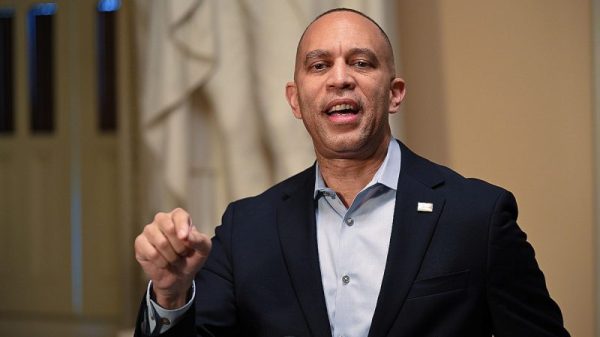
More than 2.8 million Brits have signed a petition as of Wednesday, calling on the U.K. government to reverse its mandatory Digital ID system over concerns it will lead to ‘mass surveillance and digital control.’
The ID program, dubbed ‘Brit Card’ and announced last week by U.K. Prime Minister Keir Starmer, is set to be rolled out by August 2029 in an attempt by the Labour government to crack down on illegal immigration as it would bar anyone who doesn’t have a digital ID from working in the U.K.
But critics of the plan argue its effects on illegal immigration will not be significant enough to make up for the privacy concerns it poses.
The White House confirmed to Fox News Digital that this controversial step to curb immigration is not currently being considered by President Donald Trump, despite his commitment to curbing illegal immigration and his security crackdowns in cities across the U.S.
But according to one security expert, digital ID is actually not nearly as concerning as most opponents of the system believe it to be.
‘When the government issues a digital ID, they’re issuing it to the individual. That means, just like your paper ID sits in your physical wallet, your digital ID sits in your digital wallet, it’s not stored at a central location,’ Eric Starr, founder and CEO of Ultrapass Identity Corp, told Fox News Digital.
‘When you pass your digital ID to a relying party, they don’t ping a central database,’ he continued. ‘They look at the digital ID you’ve presented, and through cryptography, can determine the authenticity of the digital document.’
Starr, whose company works with governments around the world to provide decentralized digital ID options, said the controversy around digital ID comes down to poor conception and a lack of understanding.
The tech guru said he believes the U.K. went about its rollout of a digital ID the wrong way by making it mandatory and releasing few details on the system itself.
Starr argued that governments have the right to know who its citizens are and nations, including the U.S., already have systems in place that keep track of its people, including by issuing social security numbers – a system that the U.S. has relied on since 1936.
When pressed about concerns relating to a government’s ability to enforce mass surveillance through the ease that the technology could offer, even if that is not the original intent, Starr said it comes down to establishing those protections for personal privacy from the get-go.
‘We care deeply about personal freedom in ways that other countries don’t think about it, and generally speaking, individuals don’t want the federal government in their business every day,’ Starr explained in reference to the American public. ‘The fear that people have about digital identity is that it’s a surveillance opportunity.’
Starr explained that some are concerned that any time a digital ID is used, it will then alert or ‘phone home’ a government tracking system – a concern that privacy advocates like the Electronic Frontier Foundation and the ACLU have flagged.
‘It’s not about the technology, but managing fear and managing what actually gets deployed,’ he added, noting that safeguards can be put in place to counter these concerns.
Even though there is no federal version of a digital ID, more than a dozen states have already begun issuing mobile driver’s licenses.
A federal version of a digital ID would, in theory, just include an individual’s information that the government already has access to, including details like passport information.
But there’s another major concern people flag when it comes to digital IDs – how to ensure personal information is protected from identity theft, which has become a major concern in recent years amid mass cyber breaches.
According to Starr, the ‘architecture of digital identity’ is different from centralized databases used by institutions like hospitals, which have found themselves vulnerable to cyber-attacks and data breaches.
Decentralized systems, as in the case of a digital ID, make hacking ‘nearly impossible’ because ‘the only way to hack a million IDs is to hack a million phones,’ he explained.
‘There are solutions. It’s not a technology issue, it’s an education issue, it’s a fear issue,’ Starr said. ‘It’s also poorly conceived solutions that open the door for bad behavior.’






































